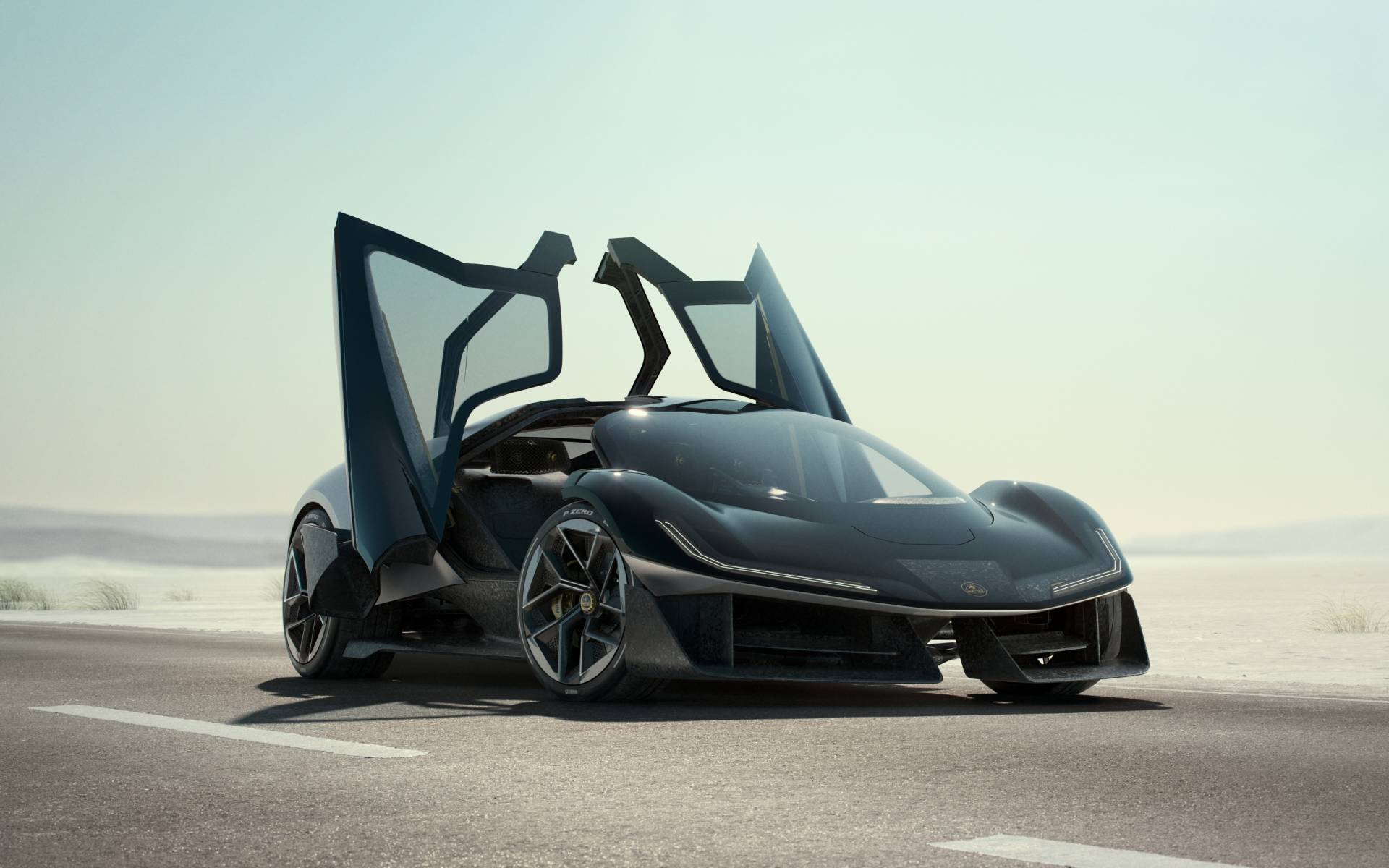Lotus Theory 1 is a Stunning Three-Seater Concept With Unreal Tech
Lotus seldom makes headlines, but today is an exception with a stunning electric sports car concept that debuts a new design philosophy, the “The Lotus Theory,” and embodies “the future of intelligent performance vehicles” from the British manufacturer.
Called Theory 1 and designed as a three-seater with the driver sitting in the middle, it’s aiming to simplify and enhance how a car should feel and perform, with the goal of delivering the ultimate driver experience.
- Also: 2025 Lotus Emeya is an All-Electric Four-Door Hyper GT
- Also: All-Electric Eletre Debuts as Lotus’ First-Ever SUV

“With Theory 1, we’ve built on everything Lotus has achieved so far in its 76-year history, to push the boundaries for what it means to drive a performance vehicle,” Lotus VP of Design Ben Payne said. “We want to demonstrate that you don’t need to compromise—with both digital and analogue capabilities working harmoniously in the future car. In doing this, we are able to bring drivers the best possible immersive driving experience with raw emotion, functionality and connectivity, at the core.”
Like an Extension of the Driver
The heart of the concept is the LOTUSWEAR driver system. This includes an adaptive and lightweight robotic textile material designed by MotorSkins, complete with inflatable pods on the seats and steering wheel that will react in real time to offer more support and grip.

The steering wheel and pedals all move towards the driver automatically, with the former also giving subtle prompts via personalized haptic feedback. For instance, Lotus says, pulses on the left and right sides of the wheel will indicate when the driver should make a turn. Sounds intriguing, but we’re not sure about the actual benefits.
As for the 3D-printed headrests, we don’t buy the company’s claim that they maximize comfort. However, part of the headrest is a binaural audio system that has been designed to offer individual soundscapes for each of the occupants, which is pretty cool.
Another key component of LOTUSWEAR is a functional OLED technology band running inside and outside of the car, communicating all sorts of information to the driver and occupants, as well as other road users and pedestrians. It’s a tribute to the iconic Lotus Esprit and also an evolution of the technology line that the Lotus Eletre and Emeya have within their interior architectures.

Safety Tech to Make Volvo Jealous
In the safety and driver assistance departments, the Lotus Theory 1 boasts four deployable LiDARs, six HD cameras, and a combination of long- and short-range millimeter radars, plus ultrasonic radars. This allows detection of obstacles at a range of up to 200 metres, in every direction, even in low light or inclement weather. Volvo must be jealous.
The company’s minimalist design approach resulted in the Theory 1 being designed with only ten main A-surface materials instead of an average of 100 in other vehicles across the industry. This includes the use of cellulose-based glass fibre, recycled chopped carbon fibre, titanium, recycled glazing, recycled polyester, recycled rubber, elastomeric polyurethane, transparent polycarbonate, thermoplastic polyurethane and recycled aluminum.

And how about this: the motor and battery assembly is used as a stressed member to remove the need for a subframe and take the forces directly from the suspension, while the rear wing has also been mounted directly to the motor and suspension assembly to ensure the downforce acts directly on the suspension mounts, all the way through to the tires. Furthermore, the proprietary car door system, with its reverse opening and wrap-over design, enables occupants with easy step-in access to the car, even in tight spaces.
All these engineering and design innovations are impressive, for sure, but the Theory 1 is not slated to enter production. Lotus expects some of them to be implemented into future cars in the coming years.












